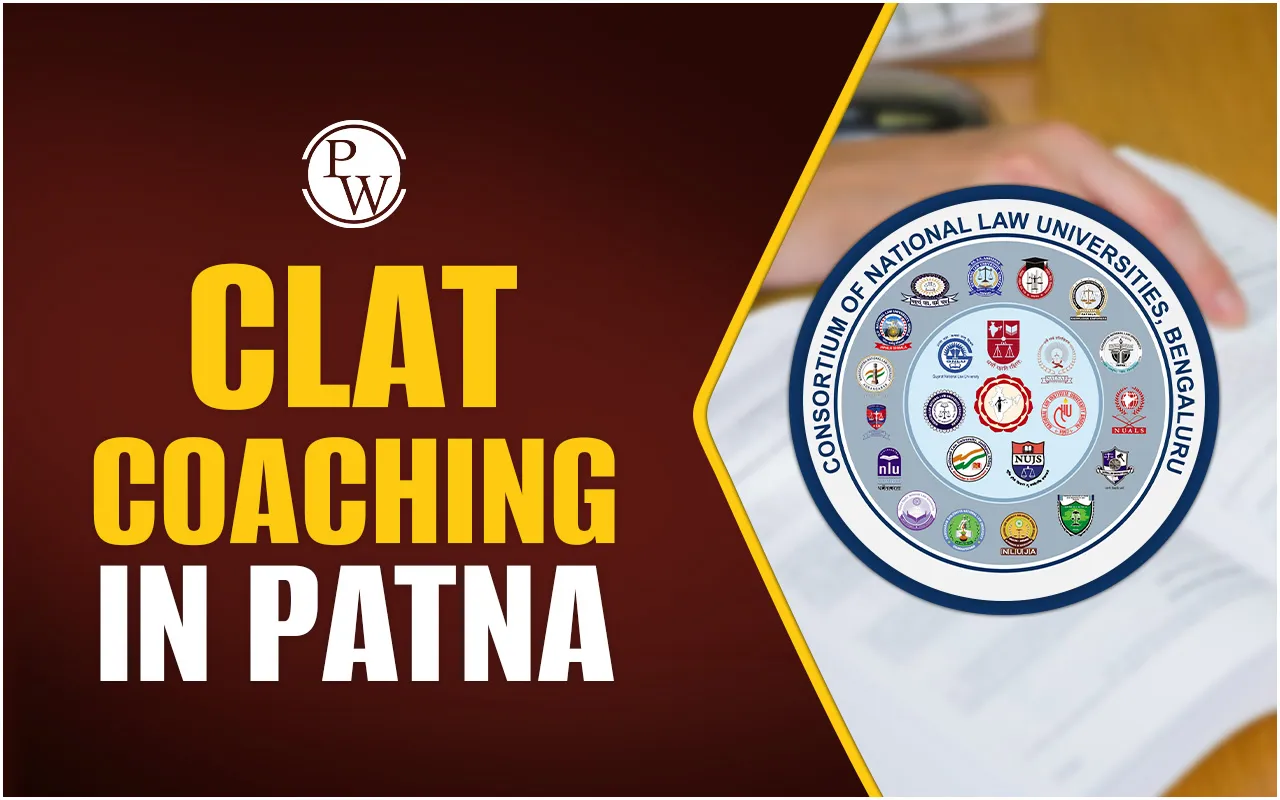

Preparing for CLAT 2026 from scratch might seem hard at first, but if you follow the right plan and study regularly, you can do very well. CLAT stands for Common Law Admission Test. It is an important exam for students who want to study law at the best law colleges in India, called National Law Universities (NLUs). Here we will explain everything you need to know to start preparing for CLAT 2026 from zero. We will cover the exam pattern, how to plan your studies, section-wise strategies, tips to improve your reading and practice, and important things to avoid.
How to Start Preparing for CLAT 2026 from Scratch Overview
CLAT 2026 is a competitive national-level exam for admission to prestigious law universities in India. Effective preparation requires understanding the exam pattern and syllabus, organizing your study schedule, and focusing on section-wise strategies. This overview provides a clear roadmap to help beginners build a strong foundation and improve their skills in all areas tested in CLAT.
Exam Pattern for CLAT Preparation 2026
Before you start studying, it is very important to understand the exam pattern of CLAT. Knowing the pattern helps you focus on what to study and how much time to spend on each topic. Here is the exam pattern for CLAT 2026:
| Exam Pattern for CLAT Preparation 2026 | ||||
| Section | Number of Questions | Marks per Question | Total Marks | Negative Marking |
| English Language | 28 | 1 | 28 | 0.25 marks deducted per wrong answer |
| Current Affairs & General Knowledge | 35 | 1 | 35 | 0.25 marks deducted per wrong answer |
| Legal Reasoning | 28 | 1 | 28 | 0.25 marks deducted per wrong answer |
| Logical Reasoning | 24 | 1 | 24 | 0.25 marks deducted per wrong answer |
| Quantitative Techniques | 5 | 1 | 5 | 0.25 marks deducted per wrong answer |
| Total | 120 | 120 | ||
CLAT 2026 Preparation Strategy
Preparing for CLAT 2026 needs a smart and balanced strategy. You should not only focus on learning new topics but also spend enough time practicing questions and tests. This will help you understand the exam better and improve your speed and accuracy. Dividing your study time properly makes your preparation strong and less stressful. Here is some strategy to start CLAT 2026 preparation:
Build a Strong Foundation by Learning Concepts Clearly
Begin your preparation by understanding the basic concepts of all subjects. Use simple and clear study materials like NCERT books, good reference books, or online tutorials. Avoid rote learning; instead, focus on understanding how and why things work. For example, in legal reasoning, understand the logic behind laws rather than memorizing facts.
Develop a Daily Reading
Since CLAT has many reading comprehension questions, daily reading is essential. Read newspapers (especially editorial sections), magazines, and online articles regularly. This habit will improve your vocabulary, understanding of sentence structure, and general knowledge. Over time, you will also become faster at reading and analyzing long passages.
Practice Topic-wise Questions to Strengthen Your Skills
After learning each topic, solve questions related to it to test your understanding. This helps you get familiar with different question formats and difficulty levels. Start with easier questions and gradually move to more complex ones. For example, practice various types of logical reasoning puzzles or legal reasoning case studies.
Take Regular Mock Tests
Mock tests are crucial in your preparation. They simulate the actual exam environment and help you manage time and stress. After every test, spend time analyzing which sections you did well in and where you made mistakes. Focus on improving weak sections by revisiting those topics and practicing more questions in those areas.
Work on Increasing Speed Without Losing Accuracy
CLAT is a timed exam, so answering quickly is important. Use timers while practicing questions to improve your speed. Learn shortcuts and tricks, especially in quantitative techniques, to solve problems faster. However, don’t sacrifice accuracy for speed—try to maintain a balance between both to avoid negative marking.
Create and Follow a Realistic Study Timetable
Plan your daily and weekly study schedule according to your strengths and weaknesses. Allocate more time to difficult subjects but also revise the strong ones regularly. Include breaks in your timetable to avoid burnout. Sticking to a timetable will keep you organized and consistent in your preparation.
Revise Regularly
Revision helps in keeping concepts fresh in your mind. Make short notes or flashcards while studying to use for quick revision. Schedule revision sessions weekly or bi-weekly to review important formulas, vocabulary, and key concepts. This reduces last-minute stress and boosts your confidenc
Section-Wise CLAT Preparation 2026
CLAT exam is divided into five important sections, and each tests different skills. To score well, you need to prepare each section with the right methods. Below, you will find a detailed preparation strategy for each section that will help you improve step-by-step.
English Language
The English section tests your reading, understanding, grammar, and vocabulary skills. It mainly focuses on comprehension passages, sentence rearrangement, and vocabulary-based questions.
-
Read newspapers like The Hindu or Indian Express daily, especially editorials and opinion pages, to improve comprehension and vocabulary.
-
Practice comprehension passages regularly to enhance your ability to understand and answer questions quickly.
-
Work on grammar topics such as synonyms, antonyms, fill in the blanks, and para jumbles from good English grammar books or online sources.
-
Learn new words every day and revise them weekly to improve your vocabulary. Use flashcards or apps if possible.
Current Affairs including General Knowledge
This section tests your awareness of important national and international events, government schemes, awards, and legal developments. Staying updated is key to scoring well here.
-
Read daily newspapers and monthly current affairs magazines focused on important news and events.
-
Follow a reliable source like GK Today or LegalEdge GK Fiesta for concise and focused current affairs notes.
-
Make your own short notes for quick revision of important facts, dates, and personalities.
-
Revise current affairs regularly, at least twice a week, to remember important details during the exam.
Legal Reasoning
Legal reasoning tests your ability to understand laws, apply legal principles to situations, and think logically about legal matters. You do not need to memorize laws but must understand the reasoning behind them.
-
Start with basic legal concepts such as contract law, torts, criminal law, and constitutional law.
-
Practice reading legal passages carefully and identify the main points, rules, and conclusions.
-
Solve previous year legal reasoning questions and practice case studies to improve your analytical skills.
-
Try to understand how laws are applied to different fact situations rather than memorizing laws word-for-word.
Logical Reasoning
Logical reasoning checks your ability to think clearly, identify patterns, and solve puzzles. It includes questions on assumptions, inferences, arguments, and analytical reasoning.
-
Practice puzzles and logical reasoning sets daily to improve your critical thinking skills.
-
Study topics such as syllogisms, blood relations, seating arrangements, and coding-decoding from standard reasoning books like RS Aggarwal.
-
Learn to carefully analyze statements and arguments in editorials and articles to build logical skills.
-
Solve sectional tests and mock papers regularly to become familiar with different question types.
Quantitative Techniques
This section tests basic math skills usually from 10th-grade level, such as percentages, ratios, averages, and data interpretation. It is important not to ignore this section as it can add valuable marks.
-
Focus on strengthening your basics in arithmetic topics like percentage, profit-loss, time-speed-distance, and ratio-proportion.
-
Practice data interpretation questions regularly from graphs, tables, and charts to improve speed and accuracy.
-
Solve previous years’ math questions from CLAT papers to understand the level of difficulty.
-
Spend at least 1 hour daily practicing math questions, especially if you find math challenging.
CLAT 2026 Online Courses by PW
Physics Wallah (PW) offers special online courses for students who want to prepare for CLAT 2026 from the beginning. These courses are made by PW faculty and cover every part of the exam like English, Legal Reasoning, General Knowledge, and more. Students can learn from live classes, watch recorded videos anytime, and practice with mock tests. Here are some of the courses that PW provides for CLAT 2026 preparation:
CLAT Achievers 2026 Batch
CLAT Zenith 2026 Batch
CLAT PRO 2026 BATCH
CLAT RISERS 2026 BATCH
These online classes are good for students who want to study from home and still get the right coaching for CLAT 2026. PW also gives tips, tricks, and guidance for time management and exam pressure.
Some Useful Tips on How to Start Preparing for CLAT 2026 from Scratch
Beginning your CLAT 2026 preparation from the ground up requires a balanced and disciplined approach. Below are some practical and effective tips that will help you start your journey in a structured and focused manner:
-
Develop a daily reading habit: Reading newspapers, editorials, and long-form articles will improve your ability to understand complex texts, build vocabulary, and enhance critical thinking.
-
Create a realistic and well-balanced study timetable: Design a weekly schedule that covers all CLAT sections, includes daily reading time, and allows for revision and regular practice.
-
Revise studied topics consistently: Frequent revision will help reinforce important concepts and reduce the chances of forgetting previously covered material.
-
Use mock tests: Focus on understanding your mistakes, identifying weak areas, and using each mock test as a way to improve your overall performance.
-
Concentrate on one subject at a time: Give focused attention to weaker sections, and dedicate extra time to mastering their concepts and question patterns.
-
Rely on a few trusted study materials: Using high-quality, recommended books and sources will reduce confusion and keep your preparation streamlined.
-
Be consistent with your preparation: Even if you study for just 2–3 hours a day, regularity will build strong habits and steady progress.
-
Monitor your weekly progress: Keep a record of mock test scores, completed topics, and improvement areas to stay on the right path.
How to Start Preparing for CLAT 2026 from Scratch FAQs
What is the first thing to do before starting CLAT 2026 preparation?
Is it necessary to read newspapers daily for CLAT preparation?
Can a student prepare for CLAT 2026 without coaching?
How many months of preparation are enough for CLAT 2026?








